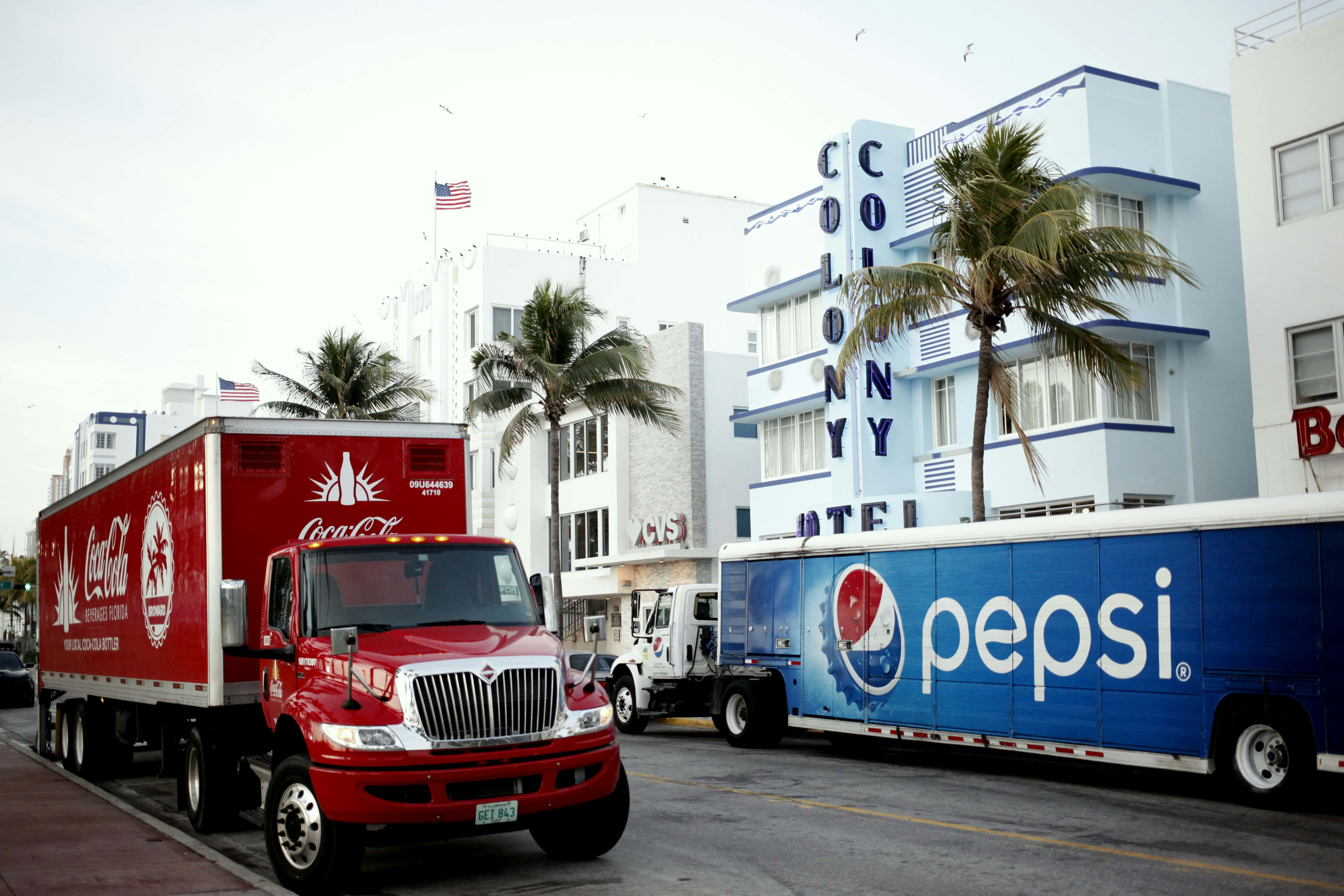Choosing the right influencer marketing platform is a critical decision
that can define the success, scalability, and ROI of your creator
programs. With dozens of tools available, each offering a unique set of
features, it's easy to get lost in the options. Two prominent names
that often come up in discussions are CreatorIQ and The Cirqle, yet they serve different strategic needs.
This article provides a detailed comparison to help you understand
which platform aligns best with your brand's goals. We'll
dissect the features, target audience, and strategic focus of CreatorIQ,
explore powerful alternatives, and see how a performance-focused
platform like The Cirqle drives measurable business outcomes for
eCommerce brands by providing case studies and examples.
Understanding the Traditional Enterprise: CreatorIQ
CreatorIQ has established itself as a dominant force in the influencer
marketing landscape, particularly for traditional, global enterprises.
It is designed to be a central system of record for creator-led
marketing, enabling brands to manage complex, large-scale programs with
precision and data intelligence [1].
Core Strengths of CreatorIQ
-
Advanced, AI-Powered Discovery: CreatorIQ's AI analyzes a vast number of social accounts,
providing deep insights into creator performance. Its proprietary
"Integrity Score" helps brands vet creators and flag
potential fraud, ensuring authentic partnerships [1].
-
Robust Influencer CRM: The platform functions as a powerful influencer CRM, allowing
brands to centralize all creator data, communication history, and
campaign workflows. This is crucial for building and maintaining
long-term creator relationships [2].
-
Comprehensive Campaign Management & Analytics: From branded onboarding portals to in-app messaging and deep
analytics, CreatorIQ offers an end-to-end solution. It integrates
with Google Analytics, Amazon, and major social platforms to measure
performance and benchmark results [3].
-
Enterprise-Grade Clientele: The platform is used by industry giants like Unilever,
Nestlé Health Science, CVS, and SanDisk to streamline global
influencer programs and unify disparate teams [3], [4].
Limitations to Consider
While powerful, CreatorIQ is not a one-size-fits-all solution. Its
primary drawbacks include:
-
High Cost: With pricing reportedly starting around $10,000 per month and
requiring a significant commitment (e.g., 12 months), it is
inaccessible for most small to medium-sized businesses [5].
-
Steep Learning Curve: The platform's complexity and vast feature set can be
overwhelming, requiring dedicated resources and training to fully
leverage its capabilities [1], [6].
-
Focus on Management over Direct ROI: While it provides robust analytics, its core strength lies in
workflow management and relationship building rather than direct
attribution of sales and revenue.
Platform Comparison: CreatorIQ vs. Key Alternatives
For brands seeking different features or a more accessible price point,
the market offers several strong CreatorIQ alternatives.
| Feature |
CreatorIQ |
Captiv8 |
The Cirqle |
| Best For |
Global enterprises needing a central system for large-scale
creator management.
|
Enterprise brands focused on social listening and AI-powered
content insights.
|
Brands of all sizes focused on driving measurable revenue
and sales through creators, with 1st party data.
|
| Key Strength |
Influencer CRM & workflow automation [2].
|
AI-powered social listening & real-time audience data [7].
|
Direct ROI tracking, sales attribution, and automated paid
social amplification.
|
| Discovery |
AI analysis of a large number of scraped accounts with fraud
detection [1].
|
Scraped database of millions of influencers with advanced
filtering [6].
|
AI-driven creator discovery focused on creators who drive
performance metrics.
|
| Pricing Model |
High-tier subscription, enterprise focus [5].
|
Enterprise subscription. |
Flexible, performance-oriented models. |
| E-commerce |
Integrates with Amazon & Google Analytics [3].
|
Branded content focus. |
Deep Shopify integration for seamless sales tracking and
attribution.
|
As the table shows, if your primary goal is deep social listening and
analyzing branded content trends, Captiv8 presents a compelling alternative. However, if your focus shifts
from brand awareness and management to tangible business outcomes, a
different type of platform is required.
The Cirqle: The Performance-Driven Alternative
While enterprise platforms like CreatorIQ and Captiv8 excel at managing
relationships and analyzing awareness, many brands today demand a more
direct link between influencer spend and business results. This is where The Cirqle carves out its unique position.
The Cirqle is an AI-driven creator marketing platform built to connect
brands with creators who can drive measurable outcomes, specifically:
revenue and sales [8]. It shifts the focus from vanity metrics to performance
marketing.
Key differentiators include:
-
Focus on Measurable ROI: The platform is engineered to track performance from click to
conversion. With tight Shopify integration, brands can see exactly
how much revenue each creator is generating.
-
Automated Campaign Management: The Cirqle helps brands find the right influencers, negotiate
rates, manage contracts, and analyze performance, automating many of
the manual tasks that bog down marketing teams.
-
Scale Performance with Paid Social: A standout feature is the ability to scale top-performing
creator content through paid social channels on Instagram, Facebook,
TikTok, and YouTube, maximizing ROI from a single campaign.
-
Case studies. The Cirqle has over 100+ case studies, ranging from AboutYou, Loop Earplugs, Butternut Box, Zelesta, Lookfantastic and Lyma Life.
For a brand asking, "How do I not only manage my creators but also
ensure they are driving sales?", The Cirqle provides a direct
answer. It bridges the gap between traditional influencer marketing and
performance marketing, making it an ideal solution for e-commerce brands
and any business focused on growth.
Frequently Asked Questions (FAQ)
Q1: Who is CreatorIQ best suited for? CreatorIQ is best for large brands and agencies that need a
sophisticated, centralized platform to manage complex, global influencer
programs. Its strengths in data analysis, creator vetting, and workflow
automation are ideal for organizations with dedicated teams and
significant budgets [5].
Q2: What are the best Captiv8 alternatives? Besides CreatorIQ, other strong alternatives to Captiv8 include
Upfluence for its robust affiliate and ambassador program features [4]. For brands prioritizing sales, The Cirqle is a top alternative
focused on scalable performance metrics.

Butternut Box
UK-based dog food subscription service achieved -16% lower CPA
and +53% increase in conversions through partnership ads.
Read Case Study
Image Not Available
Matt Sleeps
Case study details not available from the linked page. Contact
for more information about this campaign.
Link Not Available

About You
Fashion retailer slashed CPA by 49% using strategic influencer
marketing campaigns and performance optimization.
Read Case Study
Q3: Can smaller brands use these enterprise platforms? While possible, it's often not practical. The high cost and
complexity of platforms like CreatorIQ can be prohibitive for smaller
businesses [1]. More accessible and ROI-focused platforms are typically a better fit
for brands that need to prove the value of every marketing dollar
spent.

Secret Sales
Fashion outlet achieved 298% conversion rate increase through
gifting campaigns and strategic ROAS optimization.
Read Case Study

Handyhuellen
Mobile accessories brand optimized influencer campaigns for
lower CPA and higher ROI through strategic targeting.
Read Case Study

Parfumado
Fragrance retailer drove down CPA by 20% using data-driven
influencer marketing strategies and performance optimization.
Read Case Study
Q4: How does The Cirqle's AI differ from CreatorIQ's? CreatorIQ's AI is heavily focused on discovery and
vetting,analyzing massive datasets to find creators and ensure their
audience is authentic [1]. The Cirqle's AI is geared towards performance, identifying
creators with a proven ability to drive conversions and automating the
process of scaling that performance through paid media.

Loop Earplugs
Audio accessories brand achieved efficient sales growth through
strategic influencer partnerships and performance optimization.
Read Case Study

Lyma Life
Health and wellness brand optimized reach and relevance to
achieve 6.84 ROAS through strategic influencer campaigns.
Read Case Study

Zelesta
Washable duvet brand transformed authentic creator content into
a scalable acquisition channel across Europe.
Read Case Study
Conclusion: Aligning Your Platform with Your Goals
The debate between The Cirqle vs. CreatorIQ is less about which platform is "better" and more about
which platform is right for your specific business objectives.
-
Choose CreatorIQ if you are a large enterprise that needs a robust, all-in-one
system to manage complex, global creator relationships and
streamline internal workflows.
-
Consider Captiv8 if your primary need is AI-powered social listening and
analyzing branded content across a massive creator database.
-
Opt for The Cirqle if your main goal is to drive measurable revenue, track sales
attribution directly from influencer campaigns, and scale your
program's performance efficiently leveraging AI.
Ultimately, the most effective influencer marketing strategy is one
that is measurable, scalable, and aligned with core business goals. By
understanding the fundamental differences between these powerful
platforms, you can make an informed decision that drives better results
for your brand in 2025 and beyond.









































